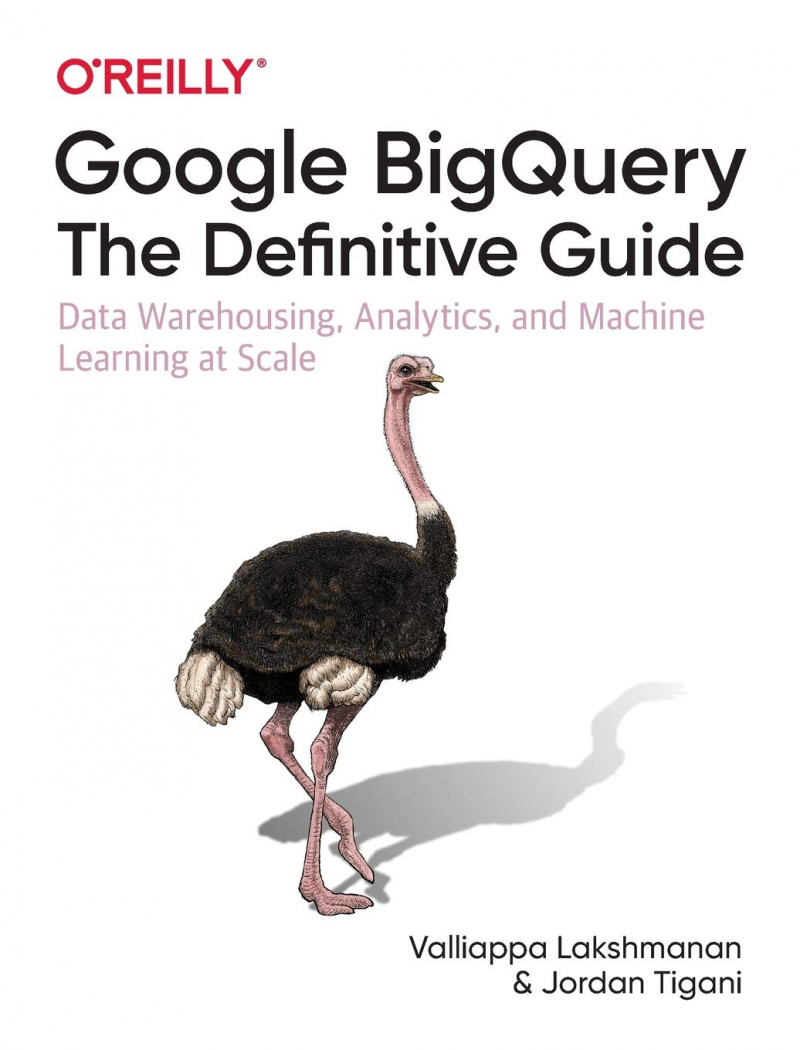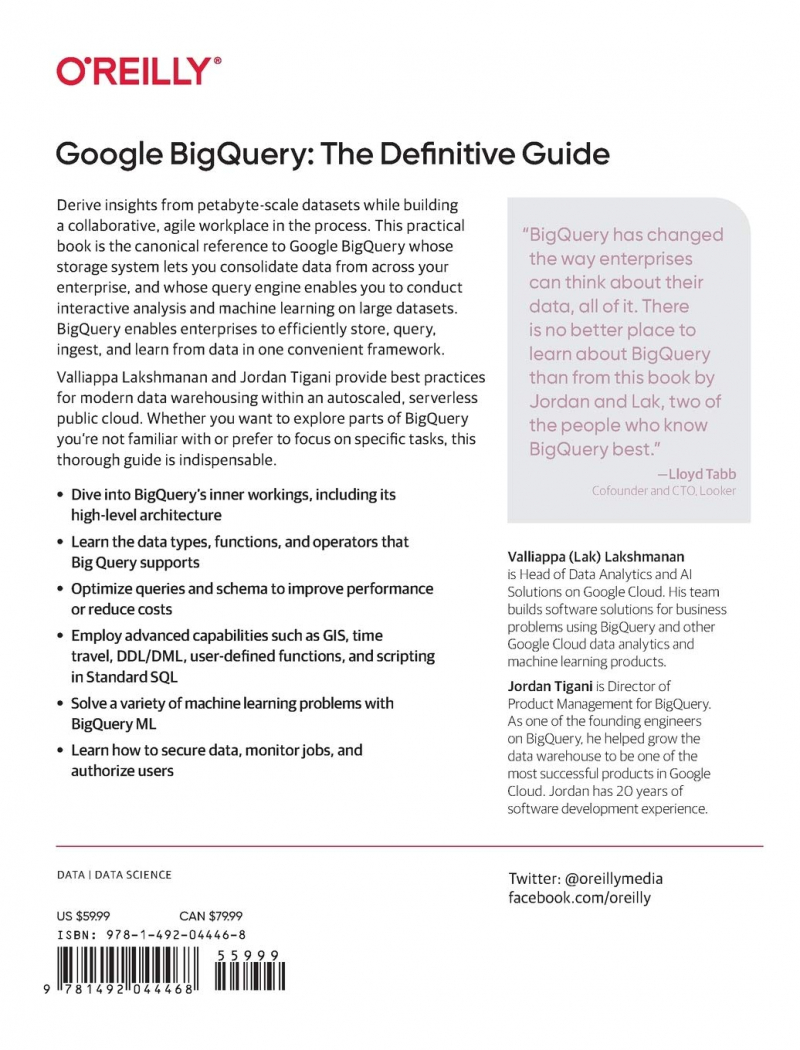Google BigQuery

Valliappa Lakshmanan works as a Tech Lead for Google Cloud Platform's Big Data and Machine Learning Professional Services. His mission is to democratize machine learning so that anyone, anywhere can use Google's incredible infrastructure.
Jordan is the core BigQuery team's engineering director. He was one of BigQuery's founding engineers, and he helped build it into one of the most successful products on Google's Cloud Platform. He wrote the first book on BigQuery and has given numerous talks on the subject. Jordan has twenty years of experience in software development, ranging from Microsoft Research to Machine Learning startups.
Enterprises are becoming increasingly data-driven, and a data warehouse—a central repository of integrated data from across the organization—is a critical component of any enterprise's data strategy. Traditionally, data analysts used the data warehouse to generate analytical reports. However, it is now increasingly being used to populate real-time dashboards, perform ad hoc queries, and provide decision-making guidance via predictive analytics. Many organizations are migrating to cloud-based data warehouses such as Google BigQuery due to these business requirements for advanced analytics and a trend toward cost control, agility, and self-service data access.
In Google BigQuery, the authors take you on a detailed tour of BigQuery, a serverless, highly scalable, low-cost enterprise data warehouse available on Google Cloud. Because there is no infrastructure to manage, businesses can concentrate on analyzing data to derive meaningful insights using familiar SQL.
BigQuery's goal has been to create a data platform that provides cutting-edge capabilities, takes advantage of the many great cloud technologies that are now available, and supports tried-and-true data technologies that are still relevant today. Google's BigQuery, for example, is a cutting-edge serverless compute architecture that decouples compute and storage.
This allows different layers of the architecture to perform and scale independently, and it provides data developers with design and deployment flexibility. BigQuery is one of the few databases that supports native machine learning and geospatial analysis. BigQuery interoperates with both traditional and modern systems, at a wide range of desired throughput and latency, thanks to Cloud Pub/Sub, Cloud Dataflow, Cloud Bigtable, Cloud AI Platform, and many third-party integrations. BigQuery also supports ANSI-standard SQL, columnar optimization, and federated queries, which are critical to the self-service ad hoc data exploration that many users require.
Among the best books on Google Analytics, this book is intended for data analysts, data engineers, and data scientists who want to use BigQuery to glean insights from large datasets. BigQuery can be accessed by data analysts using SQL and dashboarding tools such as Looker, Data Studio, and Tableau.
BigQuery can be integrated with data pipelines written in Python or Java and using frameworks like Apache Spark and Apache Beam. Data scientists can use BigQuery to build machine learning models, run TensorFlow models on data, and delegate distributed, large-scale operations to BigQuery from within a Jupyter notebook.
Author: Jordan Tigani and Valliappa Lakshmanan
Link to buy: https://www.amazon.com/dp/1492044466
Ratings: 4.5 out of 5 stars (from 95 reviews)
Best Sellers Rank: #222,564 in Books
#41 in Data Warehousing (Books)
#149 in Cloud Computing (Books)
#168 in Data Processing









